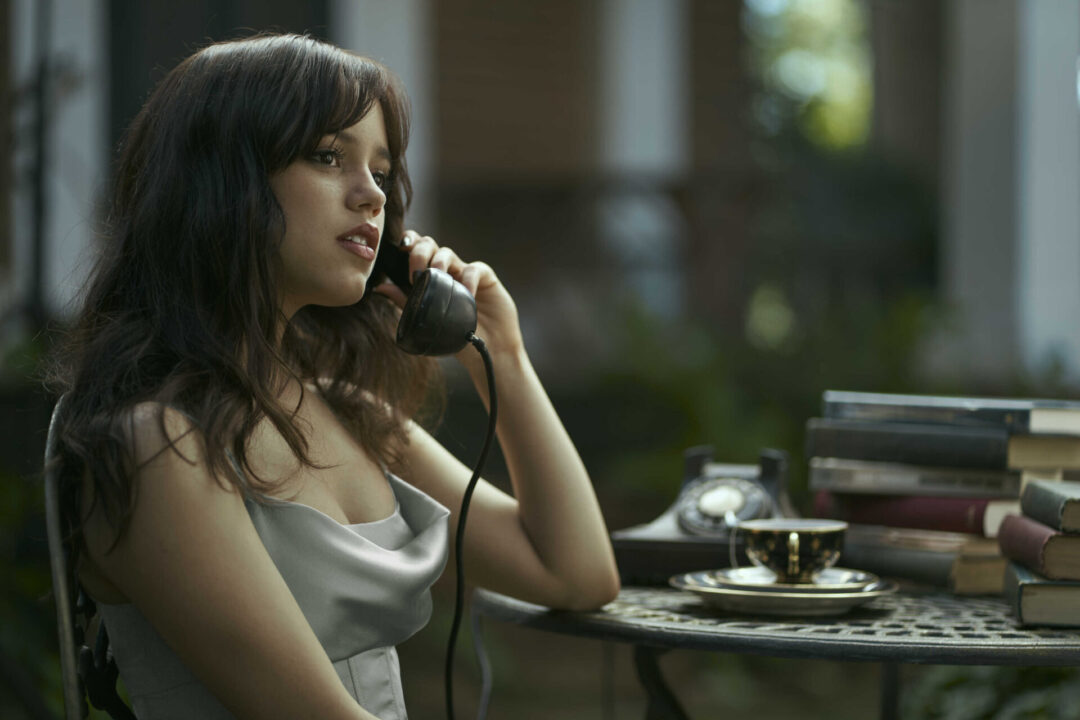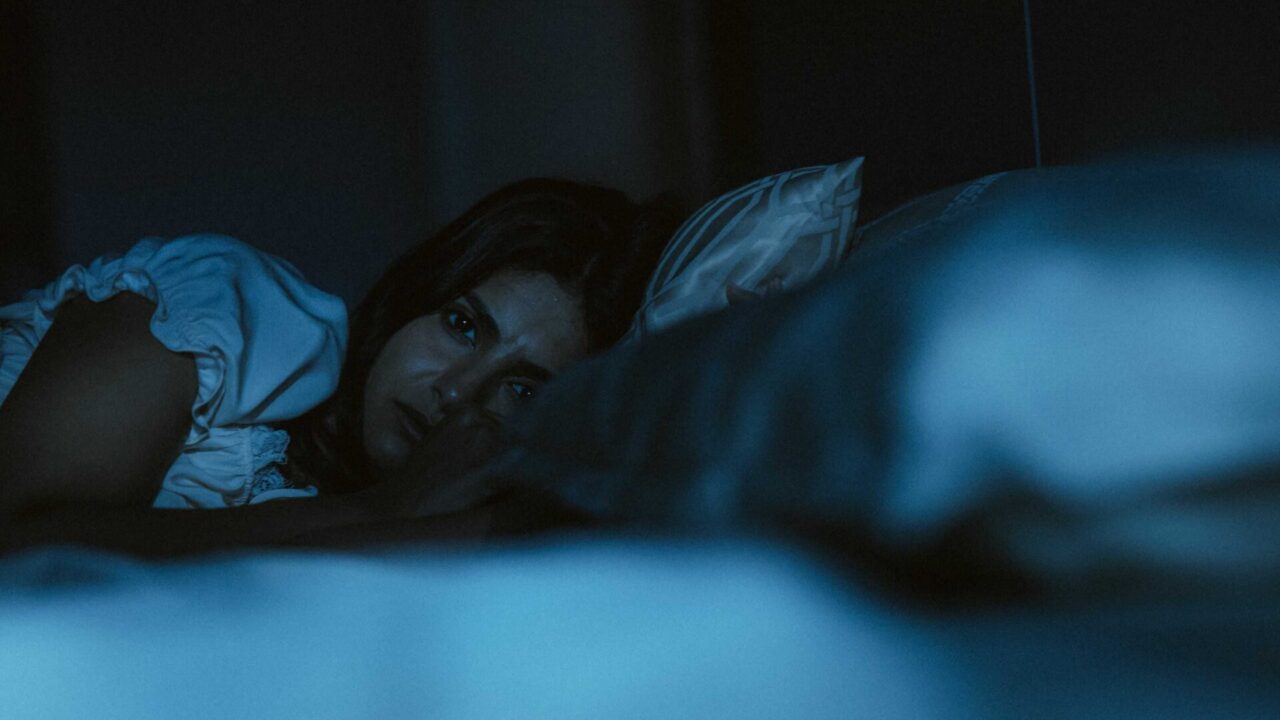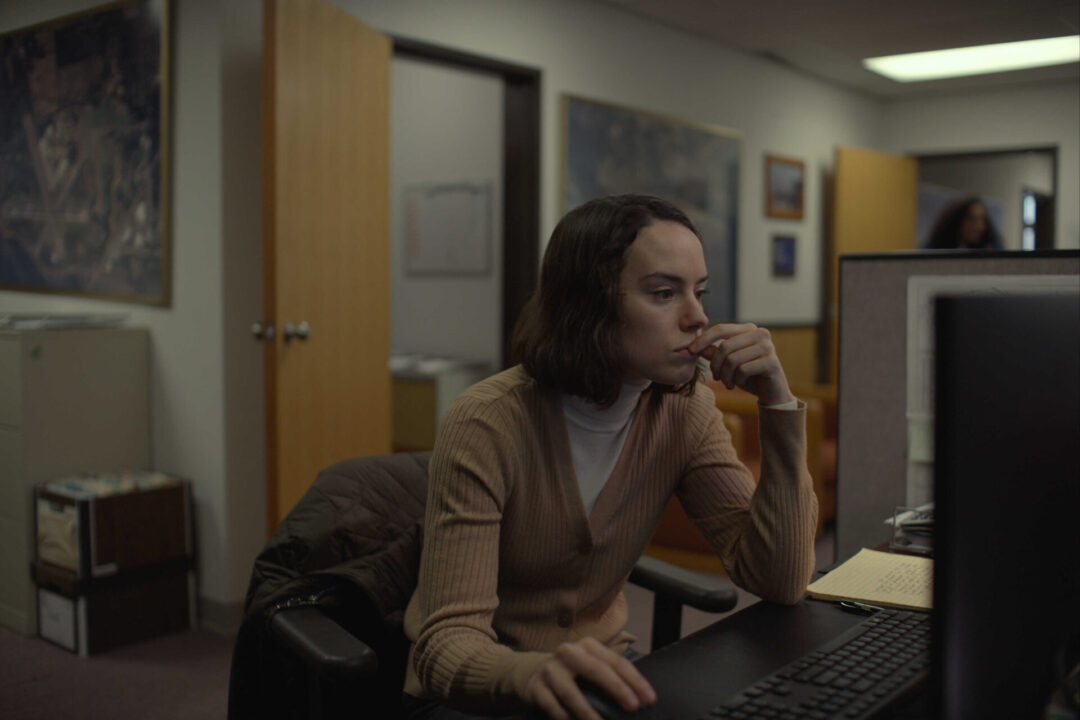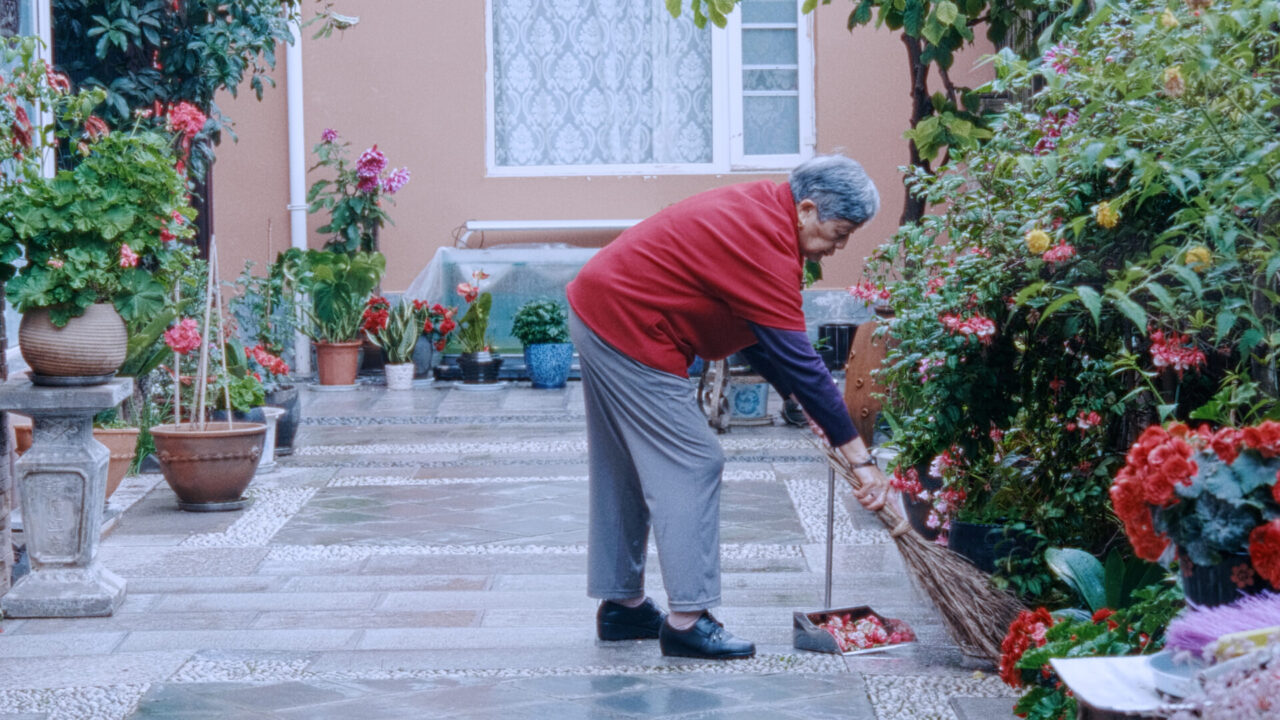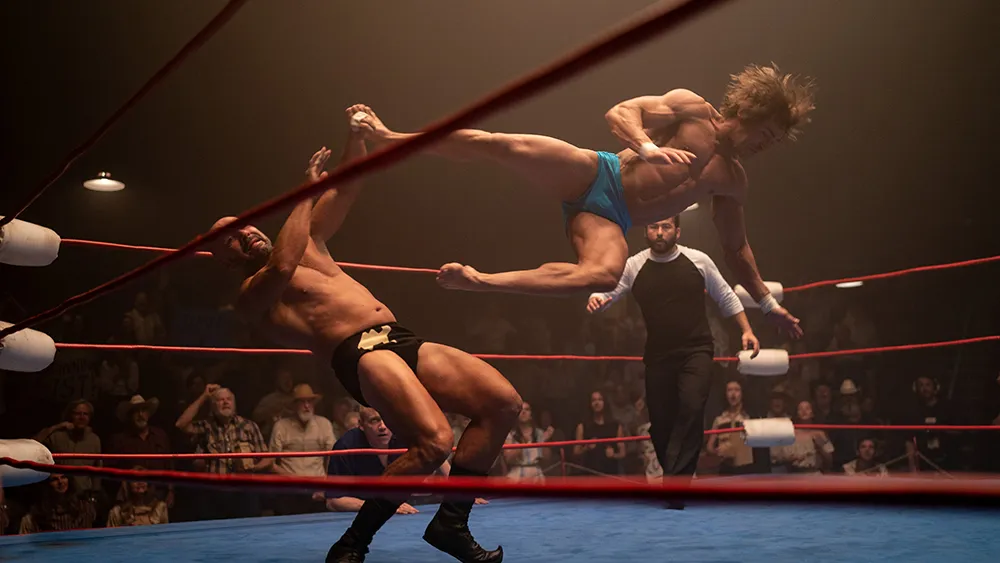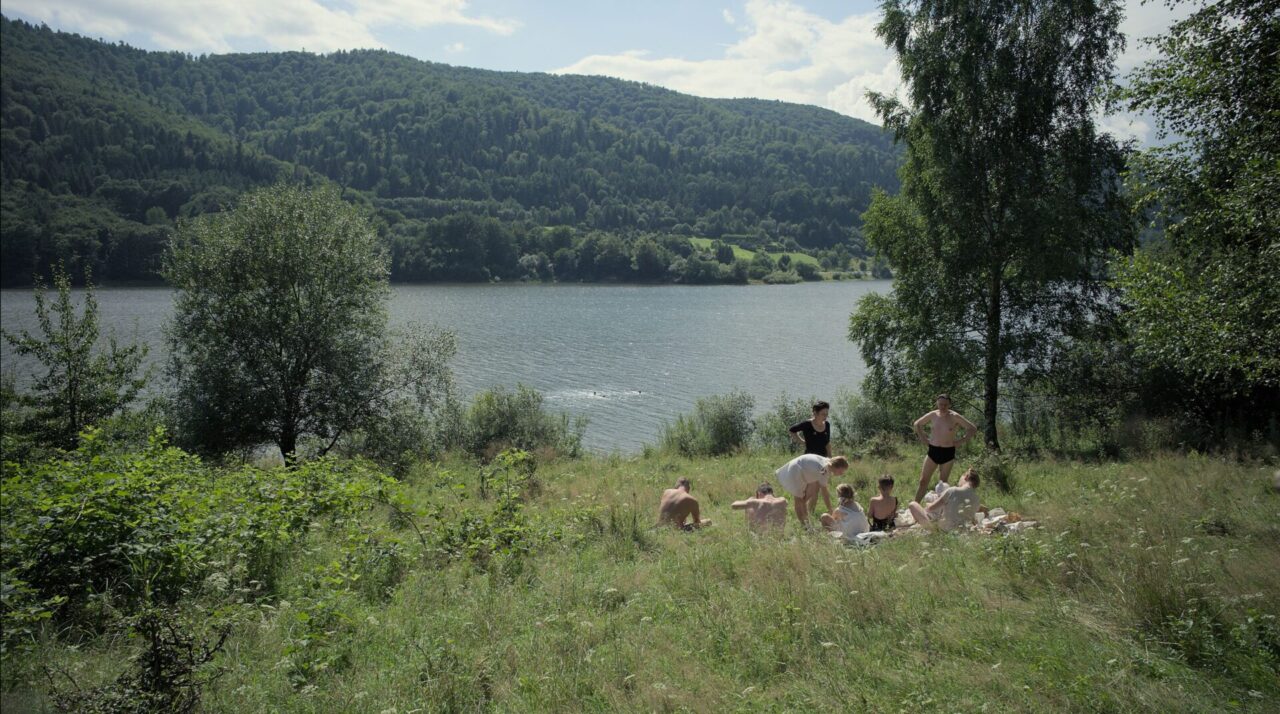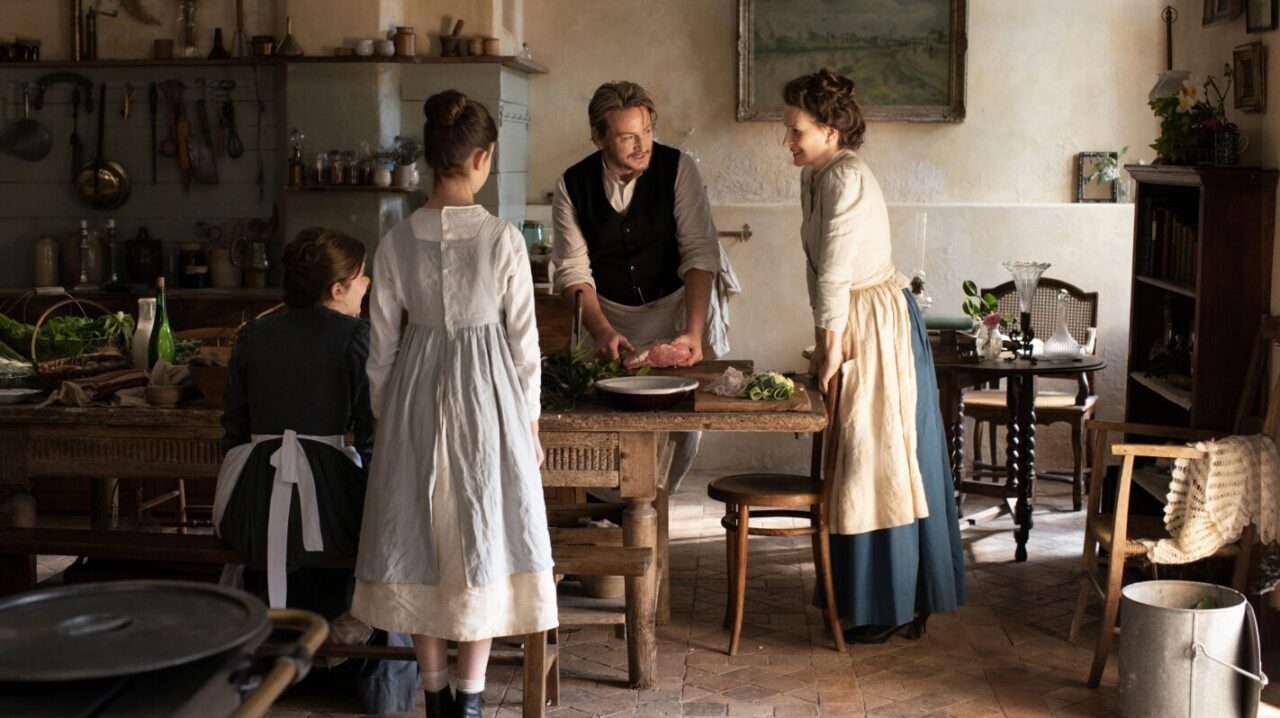'Miller's Girl' Shows Sapiosexual Infatuation Between Professor and Protégé
A sapiosexual high school student uses her maturity and intellect to seduce her English Literature professor in director Jade Halley Bartlett's psychological romantic thriller, Miller's Girl. A gothic story of misplaced desire, affection, and loneliness, Miller's Girl is a well-crafted attempt to show the complexity that arises when the boundaries between admiration and infatuation get blurred.
Cairo Sweet (Jenna Ortega) is a neglected teenager who has been burdened with fending for herself ever since her parents moved abroad, leaving her alone in their gaudy Victorian mansion. However, things could be worse for Cairo; after all, she is generationally wealthy, conventionally attractive, and an exceptional young writer. Writing is her means of escape and her passion for poetry and novels piques the interest of her new English teacher, Jonathan Miller (Martin Freeman).
A former novelist himself, Mr. Miller is impressed by Cairo's maturity and quickly becomes infatuated with her mystery and intellect. He acknowledges her potential and gives her a special assignment under the pretense that it will help her with her college admission portfolio. As the two deepen their bond over writing–with Cairo even reciting Mr. Miller's own work to him–a growing sense of devotion and admiration is palpable. They are getting dangerously close to crossing the line and potentially wreaking havoc in their personal lives, but this drama continues to fuel one of the willing participants in this taboo love affair.
She gives him attention, he gives her praise. It's a narcissist's dream.
Loneliness is the driving force behind why Cairo and Mr. Miller don't put an end to their unethical relationship. The insecurities in their home life–Cairo's parental abandonment, and Mr. Miller's unfulfilling marriage to his workaholic and alcoholic wife (Dagmara Domińczyk)–lead to overcompensating in the classroom. Both are smart enough to know that the age gap is inappropriate but Cairo's emotional and intellectual maturity seems to override any sense of his morality. She gives him attention, he gives her praise. It's a narcissist's dream.
Jenna Ortega takes on the role of Cairo with a commendable sense of intrigue and control, but even her onscreen appeal doesn't propel the film into "must-see" territory. Although provocative in nature given the subject matter, the forced character archetypes give Mr. Miller an overall sense of unbelievability. Unfortunately, Ortega's quick wit and fast comebacks at times feel inauthentic. Perhaps, if her deadpan delivery was downplayed, the highbrow zingers would have landed better. For his part as Mr. Miller, Martin Freeman gives a strong performance as a conflicted and confused man. The biggest disappointment in the casting realm is, shockingly, Dagmara Domińczyk, who seems glaringly miscast in the role of the sloppy, crude wife.
For those who have a soft spot for unsettling material, or found films like May December and American Beauty enjoyable, Miller's Girl offers a similar intensity but is far from an A+ execution.
Miller's Girl opens in theaters on Friday, January 26, 2024.
'Three' is Religious Horror Done Right
If the words "Based on a true story" weren't so prominent in the marketing materials, I never would have believed that Three was derived from factual circumstances. This admission gives incredible context to Emirati director Nayla Al Khaja's religious horror film, which also marks her feature-length directorial debut. Regarded as the "first female film director in the United Arab Emirates," Al Khaja displays exceptional control over every facet of the film's execution, starting with the rich color grade to the eerie soundtrack and a rousing performance from the young lead. Given all of the above, Three feels like a much bigger movie in scope than its indie peers.
Ahmed (Saud Alzarooni) suffers from intense night terrors, which have been steadily increasing with every passing day. Much to the distraught of his mother Maryam (Faten Ahmed), Ahmed begins acting out in bizarre ways, seemingly unable to control his body. From self-harm to attacking his classmates, Maryam believes the only explanation is that Ahmed has been cursed by an evil eye. In a desperate attempt to absolve him from the evil inside, she seeks out religious leaders to perform a traditional purging of djinn spirits. When that doesn't work, Maryam turns to Western medicine and Dr. Mark Holly (Jefferson Hall). Dr. Holly empathizes with the young mother and takes it upon himself to get to the root of Ahmed's supernatural condition, however, his attempts fall short. As a non-Muslim doctor, he embraces treatments that traditionally fall outside of his comfort zone, and it becomes clear to everyone that the only thing left to try is the most invasive and extreme method of all: an Islamic exorcism.
Outside of the more traditional horror tropes that envelop many psychologically bent films, there is a freshness to Three that feels energizing and exciting. There is a similarity here between Three and A24's breakout hit of 2023, Talk To Me, in that both films are centralized on body trauma and are grounded by confident performances. However, the personal connection and authenticity that is the backbone of Three's horror make the stakes that much higher and, in turn, very unforgettable.
Fueled by a demonic score by composers Vladimir Persan and Pantawit Kiangsiri, Three seems to be the start of a promising career trajectory for filmmaker Nayla Al Khaja. Making its World Premiere at the Red Sea Film Festival in 2023, Three is a twisty ride through Eastern and Western beliefs, religious sensitivities, and the universal mystery of the absurd. Told in both English and Arabic, this cross-cultural film is a successful portrayal of the personal compromise one must make for the greater good.
'Sometimes I Think About Dying': The Beauty of Being Mundane
At the intersection of Punch Drunk Love and Office Space lies Sometimes I Think About Dying, a dark comedy about the pains of navigating corporate culture from the point of view of a socially inept millennial. Directed by Rachel Lambert, the film uses subtle humor to show how one woman (Daisy Ridley), stuck at a dead-end job, temporarily escapes the invisible chains of her cubicle by letting her mind wander into absurd territory. Anyone who has ever worked a humdrum 9-5 will be able to relate to the boredom and abandon our protagonist feels, contributing to a reflective yet hilarious watch. Making its World Premiere at the 2023 Sundance Film Festival, Sometimes I Think About Dying is finally getting its overdue theatrical release on January 26, 2024.
A beautiful harp sequence plays over images of a crisp, foggy morning along the Oregon coast. Idyllic in both soundscape and landscape, it seems like this place is heaven on earth. However, the beauty of the day doesn't make even a dent into Fran's (Daisy Ridley) downcast disposition, whose beige cardigan matches her workplace's beige interior. Given this visual, we can safely assume that it acts as an outward reflection of her beige life. This is not the start of her fairytale morning but rather a continuation of the circumstances of her living hell.
Fran works in a small, nondescript office with nice enough co-workers, yet she stays at arm's length and remains non-receptive to their puny invitations for small talk. New life is breathed into the office when the friendly new hire, Robert (Dave Merheje), joins the team. He voluntarily initiates contact with Fran, asking her for help with simple tasks like ordering office supplies, and doesn't give up engaging in conversation despite her lack of enthusiasm towards him. Their connection isn't instant–far from it, in fact– but over time, Robert begins to peel away Fran's protective layers and starts to understand who the real Fran is.
This isn't a traditional love story, but more of a self-love story for the emotionally challenged.
This isn't a traditional love story, but more of a self-love story for the emotionally challenged. When we first meet Fran, she is working through self-doubt and criticism by envisioning all of the different ways she could die, depicted through vivid daydreams. These surreal montages incorporate risky undertakings, like hanging from machinery and standing toe to toe with a snake. These images–visceral in nature–seem to give Fran a sense of ownership over her autonomy. She may not have control over many aspects of her life but here, in her dreams, she is the boss. The film dips into this psychological aspect but doesn't linger too long in her psyche. Rather, director Rachel Lambert uses this outlet as a means of expressing Fran's quirkiness and dissimilarity to her peers.
Sometimes I Think About Dying crafts a tender and affectionate story that hits all of the right notes with conviction. The ensemble cast is made up of mostly lesser-known actors and their mumblecore dialogue delivery is nothing short of authentic. Similar in form to Jury Duty, the ensemble cast all have their own amusing quirks, making the group feel more like an improv team than co-stars. Daisy Ridley gives a stellar performance as the apathetic Fran, teetering on the edge of pity and arrogance with such finesse. Her command over the role is impressive, reminding everyone why she deserves to remain a top-billed star.
"It's hard, isn't it? Being a person." This line of dialogue has stuck with me since viewing the film, and I think it is the perfect summation of the overall tone. Sometimes I Think About Dying is a sweet nod to the outsider. And while it's not necessarily revolutionary in its execution, it offers a cathartic release for the times when you feel like nothing more than a cog in the corporate machine.
Sometimes I Think About Dying opens on January 26, 2024, at AMC The Grove 14.
'Heaven Rain Flows Sweetly' is a Love Letter Places We Call Home
Director Shasha Li makes her directorial debut in the personal, nostalgia-rich documentary, Heaven Rain Flows Sweetly. The film is full of reminiscence about Li's childhood home and the memories made there, especially those shared with her aging grandmother. Shasha's meditative, deeply moving film acts as a video diary of her most precious images, a tangible piece of video art that can be experienced on the screen over and over again. This universal feeling of longing for the comfort of childhood is explored in great detail throughout the film's brisk 68-minute runtime.
Having always considered herself to be a nomad, Shasha's love of travel and exploration brought her from China to the US as a teenager, and while she loves the life experience she has gained throughout her journeys, she admits to growing distant from her roots both environmentally and culturally. There are similarities between her hometown and her current residence in Eugene, Oregon, with the forest air and proximity to nature being incredibly compatible. However, when the famous wildfires break out, Shasha is forced to flee. The memories of her hometown suddenly become overwhelming and Shasha feels called to revisit her past.
Home is where the heart is, and Heaven Rain Flows Sweetly acts as a love letter to Shasha's hometown of Lijiang, a small village in the Himalayan foothills. Through her soft-spoken narration and vibrantly captured images, Shasha transports the viewer into the picturesque community of the Nakhi tribe with their lush surroundings. It is here, away from the bustling noises and stress of the city, that those like Shasha's grandmother live in symbiosis with nature. This slow-living mentality is a reflection of the film's meditative tone. Almost dreamlike, Heaven Rain Flows Sweetly pays homage to the cultural traditions of the Nakhi people's faith and general way of life.
The film comes across as very intuitive, given how closely Shasha is to the material as the film's main subject, director, producer, cinematographer, and editor. Given that culmination, it's not surprising that this project is an extension of herself. The personal narrative structure works so well because of the amount of access and intimacy that we are privy to. Despite coming from a deeply personal place, Shasha's story is universal and the feelings of nostalgia are something we can all relate to in one way or another. As a directorial debut, Shasha Li's Heaven Rain Flows Sweetly–is an official selection of DOC NYC 2023–and a simmering, aesthetically rich knockout.
Exclusive: Listen to Emilie Levienaise-Farrouch's Score From 'All of Us Strangers'
In Andrew Haigh's melancholic romantic drama All of Us Strangers, the theme of connection amidst loneliness is a powerful one. Starring Andrew Scott as Adam, a semi-recluse, and Paul Mescal as Harry, his outgoing and charming neighbor, the film ethereally floats through a tapestry of big emotions, including love, loss, and empathy. The parallel storyline involves Adam revisiting his past, literally, which adds another layer of nostalgia to the film's makeup.
The performances are certainly stunning and are illuminated by award-winning composer Emilie Levienaise-Farrouch's score. Using a mixture of synths and strings, she effortlessly evokes the “texture” of memory with sound and creates a stirring symphony of feelings.
Cinemacy is excited to premiere the All of Us Strangers score sampler from Hollywood Records and Searchlight Pictures, below:
Unlike more traditional films, Levienaise-Farrouch intended to create a soundtrack that acts as the sonic equivalent of memories. To achieve this, much of the score is comprised of short, fleeting moments rather than long, pattern-based melodies. The etherealness of the music aids the film beautifully and also acts as a strong standalone piece as well.
Says Levienaise-Farrouch: “Being a part of the wonderful team who made Andrew Haigh's creative vision come to life was an immense privilege. All Of Us Strangers tells a story that is narratively so specific and yet touches on universal feelings at the core as what makes us human, the yearning for connection, acceptance, and love. It has been a joy to create a musical world that amplifies Andrew Scott's delicate performance as the lead character, Adam, and accompanies the audience on this oneiric journey. Piano, cello, violin, and synthesizers, often manipulated with effects, were utilized in an intimate, dreamlike, and warm score which I hope will bring audiences as many emotions on its own as it does within the context of the film.”
Before her work on All of Us Strangers, Emilie Levienaise-Farrouch scored the BAFTA, Golden Globe, and Oscar-nominated feature, Living, starring Bill Nighy. Prior to that, the film that first put her name on our radar was Prano Bailey-Bond's horror hit Censor (2021), released by MGM. In addition to her film scoring work, which includes Sarah Gavron's BAFTA-winning feature Rocks, and Harry Wootliff’s BAFTA-nominated debut Only You, and Nathaniel Martello White's The Strays for Netflix, she has also collaborated with visual artists Danica Dakic, Alice May Williams, and Natasha Caruana on music for video installations exhibited in London, Liverpool, and Arles, France. She has also been commissioned by multiple classical instrumentalists to compose pieces for their repertoire.
Hollywood Records and Searchlight Pictures are releasing the 18-track score album 'All of Us Strangers (Original Score)' alongside the film's theatrical release on Friday, December 22.
'The Iron Claw': The Hereditary Curse of Family Legacy
For a film so deeply rooted in machismo culture and the bonds of brotherhood, there is a soft side to The Iron Claw that is so unexpectedly moving it brought a grown woman (me) to tears. Director Sean Durkin's biopic of the world's most infamous wrestling family tells a haunting story of legacy, expectation, and the costly price of success. Complicated family dynamics between an oppressive father and his four compliant sons create such palpable tension and discomfort that it can be hard to watch at times without intense feelings of parasocial guilt. Despite this, I'm hard-pressed to recommend anything else. Durkin and his incredible ensemble cast bring to the screen one of the most visceral films of the year, one full of tenacity and grit, and easily among my favorites of 2023.
Set in the early 1980s, The Iron Claw tells the true story of the Von Erich family and their tragic, unfinished legacy within the competitive world of professional wrestling. Born and raised in Texas, the bond between the Von Erich brothers – Kevin (Zac Efron), Kerry (Jeremy Allen White), David (Harris Dickinson), and Mike (Stanley Simons) – is truly something special. Not only do they share a love of wrestling, but they all endured growing up in the shadow of their domineering father and coach, Fritz Von Erich (Holt McCallany). Determined to have his sons pick up where he left off and push the family name toward victory, Fritz creates an environment where winning a medal equates to winning his respect.
The tough love, despite its borderline abusive tendencies, seems to work. Kevin's (Efron) commitment to the sport proves unwavering as he climbs the ranks and starts becoming a notable figure. He seems like the obvious choice to lead the Von Erich dynasty to victory but obstacles make his road to stardom difficult. His brother Kerry (White), whose Olympic discus dreams were dashed after President Carter denied Americans from competing due to political reasons, realigns his athletic ambitions and sets his sights on the wrestling ring as well. David (Dickinson), known for his outgoing personality, follows suit and quickly becomes Fritz's favorite son – a title Fritz doesn't shy away from publicly declaring. His attempts to subtly pit the boys against each other to stir up aggression and animosity have an adverse effect; the Von Erich boys instead band together to become a source of refuge and understanding.
This story could have resulted in many different outcomes, but the deaths of three of the four brothers never crossed my mind. For those unfamiliar with the story, unfathomable misfortune and loss pollute the Von Erich family's legacy. All silently suffering from childhood trauma at the hands of their father, which they express in different ways. It's a heartbreaking realization that Fritz is clearly more concerned about his family's legacy than his individual children's well-being and future.
As the credits rolled, I was left gobsmacked. The ensemble cast is phenomenal, nothing short of astounding. For his role as the sole survivor, Zac Efron undergoes a full-body transformation that is worthy of every award. Jeremy Allen White and Harris Dickinson tap into their raging animalistic side and give some of their best performances to date. It's guttural, emotive, and tender all at once. Breakout star Stanley Simons, who plays the youngest brother Mike, is breathtaking. His presence among the film's A-list stars feels authentic and grounded, a tall order for any actor but one that he fills with ease. Holt McCallany as Fritz and Maura Tierney as the boys' emotionally detached and stoic mother, Doris, are both pitch perfect. The film is incredibly physical, and all who participate in the logistical aspects of the performance, both in the ring and outside of it, are exceptional. The amount of work that went into preparing for these roles and the amount of muscle that had to be built to achieve the Von Erichs' signature stature is an astounding feat.
In a career-defining role for Efron, as well as for director Sean Durkin, The Iron Claw lands squarely within the narrow qualifications for perfection. It is both a ghost story about lost potential as well as a testament to the antithesis of fame. It's complicated, emotionally taxing, and devastatingly abrupt. The Iron Claw should go down in history as one of the best sports biopics of all time.
In theaters this Friday, December 22, 2023.
'The Zone of Interest': The Immersive Disquiet of Holocaust Atrocity
I was tempted to make this review my shortest one yet at only five words long: "You must see this film." Words can only go so far when describing Jonathan Glazer's hauntingly grim immersive experience, The Zone of Interest. Winner of the Grand Prix at the 2023 Cannes Film Festival, this Holocaust-set drama is a chilling portrayal of history's most atrocious cruelties. If you're like me, it will leave you speechless.
Based on the biographical novel by Martin Amis, The Zone of Interest views the devastating events of the Holocaust from the perspective of a German militia family. The phrase "Zone of Interest" was commonly used by the Nazi SS to describe the small area immediately surrounding the Auschwitz concentration camp. And it's here where this film takes place.
The commandant of Auschwitz, Rudolf Höss (Christian Friedel), and his wife Hedwig (Sandra Hüller), attempt to build a dream life for their family despite being surrounded by the consistent sounds of suffering and death. Their picturesque home and luscious garden lay in stark contrast to the concentration camp that borders their property. As much as Hedwig and her young children seem to easily drown out the sounds of gunshots, crying, and screaming, we as viewers know that there is no escaping the horrors that are taking place behind the walls. Inside the family's home is a haven; but step one foot outside, and it's hell.
When Rudolf is informed that his superiors want him to move to a different city, Hedwig is beside herself. She refuses to leave the beautiful home she made for herself and, for a while, their marriage is only barely surviving. Rudolf views his responsibilities as a death camp commandment with the utmost respect and obeys his orders, taking this new position as an opportunity to better provide for his family. It's a morality mind warp, as on one hand, Rudolf cares so little about human life that he is actively encouraging mass genocide. On the other, he sacrifices everything to give his family the best life he possibly can. As a viewer, confronting guilt, conflict, and humanity comes in unpredictable, emotional waves.
https://www.youtube.com/watch?v=r-vfg3KkV54&ab_channel=A24
Witnessing the atrocities of the Holocaust from a perspective we don't often see–that of the Germans–is one of the reasons why The Zone of Interest is such an uncomfortable watch. There reaches a point where the screams from behind the concentration camp walls become almost ambient, like a horrific yet subtle soundtrack that plays in perpetuity. Adding to the discomfort is the intentional lack of any musical score. Composer Mica Levy (Under the Skin, Monos) contributed ambient-heavy, noise-distorted sound to aid in the opening and end credit roll, but aside from those two moments, there is no additional music. Instead, sound designer Johnnie Burn is heavily relied upon to craft a sensational auditory world that runs concurrently with what is playing onscreen.
Capturing the nuances and complexities in stunning detail is cinematographer Łukasz Żal (Ida, Cold War, I'm Thinking of Ending Things). True to form, Żal's compositions are masterfully composed, even with Glazer's unconventional production technique. Fixed and partially hidden cameras were placed around the entire family house, and the actors were required to perform long, unbroken takes, never knowing which moments would be used in the final edit. Due to the nature of the shoot, Friedel and Hüller were tasked with improvising some scenes while others were carefully scripted.
For most of the production, Glazer and Żal watched the scene play out through monitors while stationed in a separate concrete bunker with a team of focus pullers working via a system of remote cables. Says Glazer: “The phrase I kept using was ‘Big Brother in the Nazi house.’ We couldn’t do that, of course, but it was more like the feeling of ‘Let’s watch people in their day-to-day lives.’ I wanted to capture the contrast between somebody pouring a cup of coffee in their kitchen and somebody being murdered on the other side of the wall, the co-existence of those two extremes.”
The performances from Christian Friedel and Sandra Hüller as stiff and detached protagonists are among the year's best. They keep the audience at arm's length, and their vacant eyes say more than any words could. Psychologically mystifying, the duality of playing a character with human emotions, yet seemingly devoid of apathy, is a fine line to walk. Yet Friedel and Hüller walk it with a stark, horrifying precision.
The Zone of Interest is, at its core, a rather simple story about one Nazi family's existence and contributions to one of the worst events in human history. It's a difficult film to witness and an even more difficult one to forget.
'The Taste of Things' Is a Transfixing Culinary Triumph
Perhaps one of the most viscerally indulgent films of the year, filmmaker Tran Anh Hung's The Taste of Things offers a sizzling, gastronomic treat that aims to satiate all of the senses. At the heart of the film is a tender love story between two middle-aged cooks in their "autumn" years whose commitment to each other consistently reverberates throughout their rich, albeit, repetitive life.
The year is 1889 and Eugénie Chatagne (Juliette Binoche) can be found doing what she does best: cooking. Commanding the kitchen as if on auto-pilot, Eugénie waltzes around the stoves and counters with stunning confidence and finesse. No recipe books to be found, she adds thinly sliced vegetables to the pot au feu, dashes of salt to the brine of fish, and whole milk to the pastries that will no doubt come out perfectly golden brown. Eugénie is a food artist and is highly respected by chef Dodin Bouffant (Benoît Magimel), whose meals are often prepared for him and his friends by Eugénie.
Admiring more than just her skills, Dodin is infatuated with Eugénie and expresses his love often. The two cooks have worked together for over 20 years and their love for each other has sustained time, growing stronger with each passing year. It is never explicitly addressed why Eugénie has kept Dodin at a distance, romantically speaking, despite clearly having so much love for him, too. However, their love circumvents the need for traditional labels. They express their devotion through the food they prepare for each other; acts of service are their love language and they are fluent in their declaration.
The Taste of Things is nothing if not a flavorful feast for the eyes and ears. The opening of the film takes audiences on an artful journey through the intangible senses as we watch Eugénie and her young apprentice prepare a multi-course meal fit for a king. With such synchronicity–as if choreographing a ballet–we watch her quietly create some of the most gorgeous plates of French cuisine to ever exist on screen. It's almost comical how appetizing the food looks and how we can practically taste every individual course in such fine detail. Three-star chef Pierre Gagnaire served as a consultant on the film, helping director Tran Anh Hung achieve perfection on a plate.
Juliette Binoche delivers a reliably strong performance as the self-assured Eugénie, her grace and embodiment of the character are truly felt. Acting opposite Binoche is Benoît Magimel, her real-life former partner and father to their daughter, Hana Magimel. Binoche shared this connection in an exclusive Q&A during an early screening to a stunned audience, who mostly had no idea there was a prior history between the two leads. This personal backstory aids the film in insurmountable ways. Another unconventional takeaway is that for as much joie de vivre that surrounds The Taste of Things, there is a noticeable lack of score. A singular piano piece from Jules Massenet’s opera “Thaïs” is the only musical element in the film, however, the film never lacks for sound. The elements of cooking–sizzling butter, burning wood, running water, chopping vegetables–all aid in creating the film's aroma-based soundtrack.
The richness that seeps throughout the scenes in The Taste of Things is a vision to behold. Let yourself get washed away in the sights and smells of Tran Anh Hung's transfixing culinary triumph.

